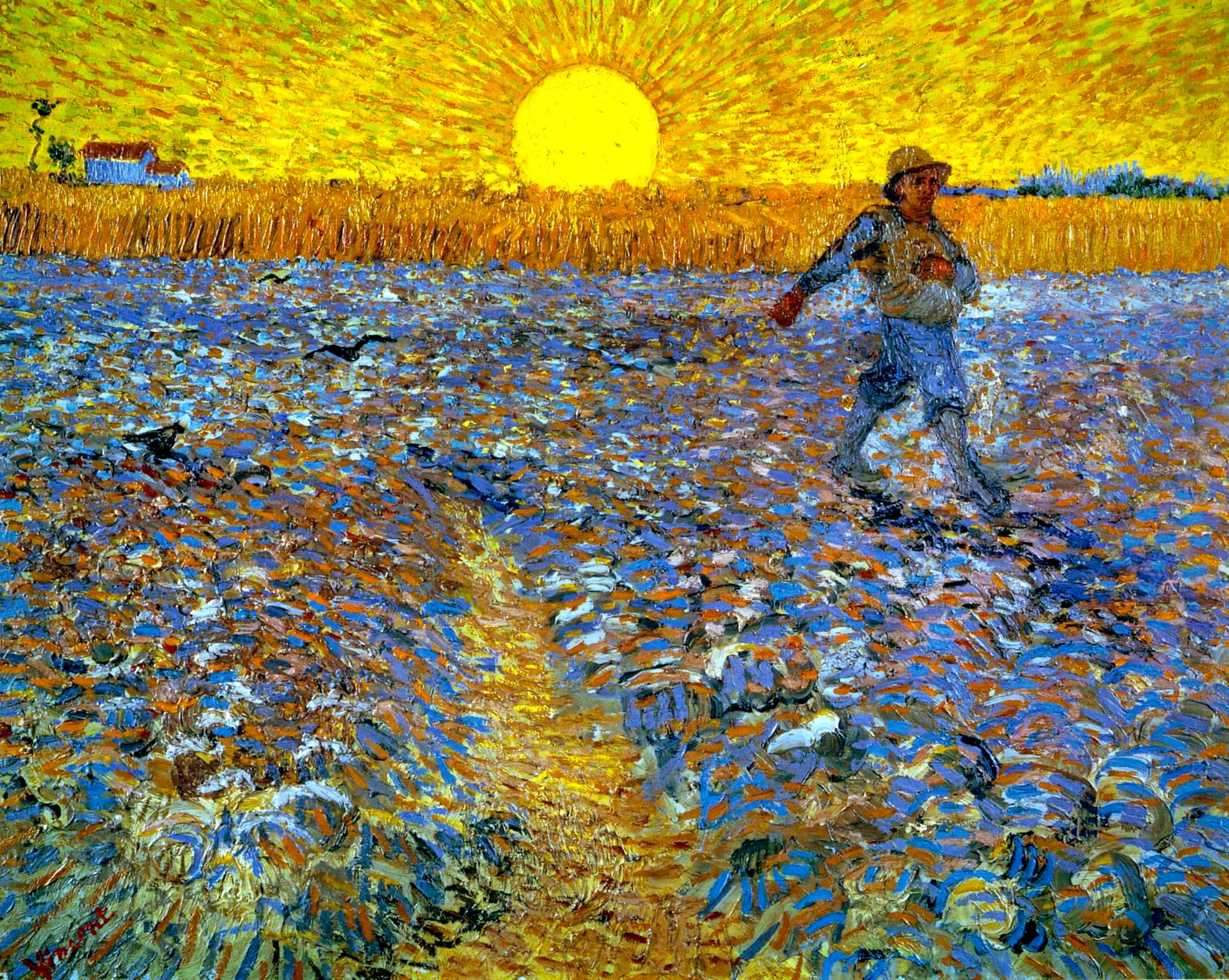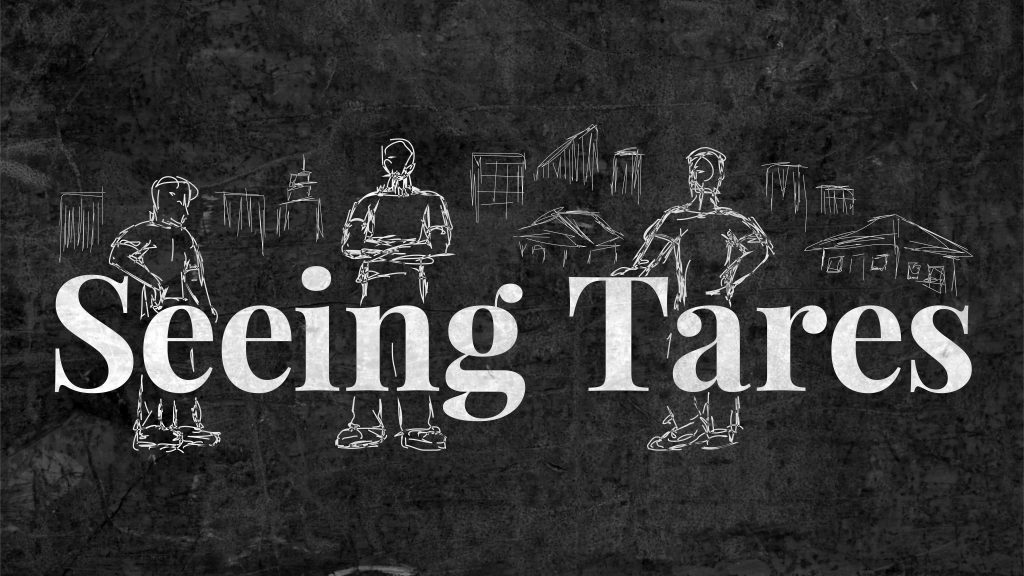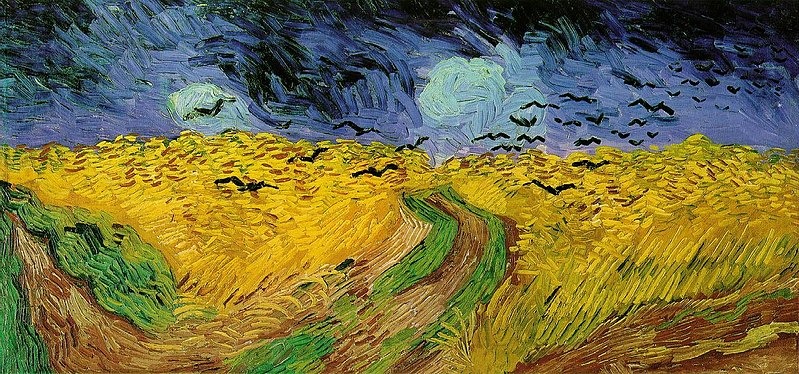
Grateful for this one by Jay Wamsted.

I could hear the trouble outside through my door. I taught ninth graders that year—a challenge even on the best day—and I should have been posted up in the hallway before my students returned from lunch, should have been using their inertia to usher them straight into class. Instead I was just a little late crossing the room from my desk, panicking as I unlocked the door. Though I was able to watch the tail end of an argument between two of my students—they were squared off in the shadow of my doorway, foot traffic diverting seamlessly around them—I couldn’t hear anything that was said over the noise of the crowd. Somehow, though, I did manage to hear the sound of Darren punching Marcus full in the face.
It was a huge hit, action-movie exaggerated, straight across the jaw—and it gave off a queasy thud that cut through the din. The crowd stopped flowing and agglomerated around the boys as Marcus—five-foot-four if he was an inch—reeled from the blow, stumbling on his feet in an effort to mitigate humiliation. His eyes skittered left and right; you could almost see his mind racing about next steps. Darren was at least six inches taller and thirty pounds heavier, one of those fifteen-year-olds who appears fully grown—an actual fight was out of the question. His entire body was flaring as Marcus, nursing his jaw, ducked the crowd and escaped into the room. Darren turned tail and stalked up the hall, weaving against the current as he ran away from me.
After making sure that Marcus was bruised but not bloody, I followed him.
![]()
This is a story about three boys living in a rough part of southwest Atlanta; the third is Simeon—he was in the hallway at the time, watching the argument. I taught them math their first two years of high school both in grade-level classes as well as in remedial electives. Most ninth graders enter my room around two years behind in their math skills, but these three boys had been given a double dose of freshman math because the system targeted them as “high-risk”—this euphemism in a school where 80% of the student body lives right around the federal poverty level and sometimes up to 50% of a class ends up dropping out. The truth is that most of our school is high risk, and, though no label exists for such a thing, these three boys were something akin to ultra-high risk, my classes a part of their last-chance plan before being given up for lost.
![]()
I rounded a corner just in time to see Darren slip into an empty office. Following him in and assuming my most authoritative tone, I peppered him with questions about what had happened. It started friendly; then they were arguing; then Marcus dropped a humiliating verbal affront; then Darren lost his temper. He regretted having hit a smaller boy so hard, but he had reacted instinctively to the embarrassment. He knew it was wrong, but he wasn’t apologizing. Somehow he was both defiant and quiescent.
There is no playbook for this sort of thing; I had the length of his brief speech to decide what to do. Following my gut, I read Darren the riot act about violence never being the answer, then told him I would go to bat for him with the principal. I knew firsthand how smart a mouth Marcus had in the classroom with an adult present; I could only imagine how he might speak under the cover of the hallways.
I decided against Marcus, and chose Darren.
![]()
In the thirteenth book of Matthew, Jesus tells a parable about wheat, tares, and an enemy; it was an important scripture for me when I began teaching twelve years ago. I found it helpful to imagine the beautiful crop that should have been my students’ lives, to feel the unseen enemy sowing weeds. Poverty, racism, violence, drugs—forces careering around not just my students but also their parents and grandparents, evil turning my job into something more than just the transmission of math. The parable warned against giving up on the wheat when I felt overwhelmed by the tares. Go home and rest up, it said—then get back out there into the field and tend to the crop. There is work to be done, and we can’t let the enemy win. The weeds will be set to rights eventually. Today, you need to keep teaching.
By the time I met Marcus and Darren, however, my understanding of the parable had shifted. It was my sixth year of teaching, and the difficulties of working with upwards of forty students per class had effected a necessary evolution in my thinking: “You can’t fix everything.” Colleagues gave me advice for classroom management, and I tweaked my structure to increase face time with as many groups of students as possible, this at the expense of some one-on-one interactions. A mini mantra of sorts formed out of that starfish parable and its powerful message: “It matters to this one.” I did my best to reach as many students as possible, even as I knew I never would get to everyone.
As I got better at running the room, it seemed to me I was developing an ability to predict who was going to succeed in my class and who wasn’t—this not only by the end of the semester but also increasingly toward the beginning. Before long I felt as if I could more or less “see” a high school graduate by the first quarter of freshman year math. Half of my students were going to drop out, and I felt like I knew which ones. I was starting to look into the faces of my students and see wheat and tares.
![]()
I took Darren back down the now-empty hall to the office. Leaving him in the waiting room, I went in and made my case for how to handle the disruption, and my principal went along. He read Darren a second riot act and kept him out of class for the rest of the day in order to give Marcus a break. I went back to my room and taught as if nothing had happened.
The next day I sat down with Marcus’s mother and explained our decision not to adjudicate this case of hallway justice. She probably thought we were invoking some sort of school policy regarding a verbal spat gone wrong, but the truth was that the decision was entirely mine. My principal had placed his trust in me; it would have taken a huge effort by the mother to overturn our actions. She left frustrated at both of us—after all, her son had been the only one injured—but I was certain I had made the right choice.
![]()
By sophomore year Marcus’s mouth had mellowed out. He had matured over the summer, swerved his class clown antics. I suddenly found him to be mostly hilarious; soon he was one of my favorite students.
Darren got increasingly more difficult. He wouldn’t do any work; instead, his favorite activity was to count his money ostentatiously on his desk—funds that everyone knew he earned selling drugs. At some point he was suspended for bringing a sizable knife to school. I had to call my principal in to remove him at least once a week.
By senior year Marcus had moved on to another math teacher, but he returned to my room often to speak. He was doing well in all his classes, and along with a small coterie of former students he worked part-time at the grocery store my family frequents. He asked me to write a college recommendation letter.
Darren missed several months of school after a bullet grazed his head during a busted drug deal. When he returned he slapped a female teacher in the face and was expelled.
Marcus graduated in the spring of 2015. His mother invited me to a party in his honor. He is now in his junior year of college.
I have no idea where Darren is.
![]()
A couple of months ago, apropos of nothing, my principal turned to me and said, “Hey, remember that time you talked me into letting Darren off the hook for punching that little boy? You sure messed that up, Wamsted.”
I agreed, but not for the reasons he meant. For years I thought the lesson of this story was that I had chosen wrong. I believed that if I had been paying just a bit more attention to the fight, if I had listened just a little closer to Darren’s explanation, if I had done better then I would have made the right choice. I chose Darren over Marcus, but I should have done the opposite.
I carried this lesson into my classroom for six years until quite recently. I see the truth now—my problem wasn’t mistaking wheat for tares. It wasn’t an error in seeing; it was an error in believing I could see at all. For so long I thought I made the wrong choice, when what was wrong was the fact that I thought I knew how to choose.
The week before classes began this fall I had a visitor to my room, a former student I hadn’t seen in over two years, not since what should have been his graduation. Let me tell you about Simeon.
![]()
Simeon was in class with Marcus and Darren that freshman year. He was friends with both of them; he was friends with everyone. A tough kid to teach, he entered my ninth grade classroom already mixed up with the quasi-gang structure that threads through our school. I heard only hints about how this affiliation played itself out in the neighborhood, but I know that in the school building it resulted in skipped classes, petty thefts, and fights. A drug habit attended these complications—often when he was in class Simeon was high.
Despite all this, we had a good relationship. In fact, he asked to be transferred into my class sophomore year after being assigned to a different teacher; in turn, I was glad to see him. He didn’t get much work done, but he never caused any trouble for me, and our positive vibes spread to other students who may have misbehaved if not for his influence. He did enough to pass my classes, but I always felt as if I could see the writing on the wall. Then, in the middle of his junior year he disappeared, dropped out. I had been halfway expecting it for so long that I barely felt disappointed; I had suspected that Simeon was a tare, and now I thought I knew.
He came to visit me about a year later, and I got the full story—he needed to leave the southwest side of town for reasons he didn’t want to list, was crashing at a relative’s house, trying to find a job, would get back in school soon thereafter. I was glad to see him, of course—he could easily have been in jail, and his efforts at staying clean were valiant. But I never really believed him that he was going to go back to school. I still thought he was more tare than wheat.
Two years went by before he visited me again—“just stopping by to say hi, Wamsted; I always loved it in here with y’all.” I asked him how he was, and he answered with a long monologue, a ramble that slowly focused in on how it felt to have a bullet digging into his leg. He wouldn’t say how it got there, only that the doctors told him it was too close to his knee to remove safely. So it stayed buried in his flesh, working its way slowly out through the scar tissue. For years, he was in nonstop pain.
That was the past, however, back when he was still in my class. It was part of why he had quit school. By this point, finally, the bullet had worked its way out.
He had stayed on the other side of town, kept safe, and had gone back to school. He had earned his G.E.D. the previous fall and was parlaying his new educational status into a more expanded search for employment—the degree plus his work experience was putting him in line for a full-time job complete with benefits. I was stunned, so entranced by his story that I hardly noticed when he brought it to a close. I blinked at him as he smiled at me; I was more or less speechless. He gave me a hug, told me he’d be back to visit again, walked out of the room.
This time I believed him.
![]()
It isn’t that I made a mistake choosing Darren over Marcus. The mistake was in trying to choose at all—Simeon is proof of this. When a seventeen year old drops out of high school after getting shot in the leg it may be natural to assume that this boy is a tare. And yet, Simeon was so much more than that—he was the wheat I used to envision, beset on all sides by obstacles but able to persevere. The bullet was the tare, the object sowed by the enemy to derail his life. By the grace of God, however, that bullet made its way out of his leg. He was free.

I can’t tell wheat from tares; I know that now. For Simeon’s sake, I’m working at remembering that every day when I stand in front of my class—so many of my children have some sort of bullet digging into their flesh, and I need to recover my original sense of the parable. Yes, some of my students are going to drop out; some are going to get shot; some are going to go to jail or worse. But who am I to call a child a tare? Simeon was never not wheat, and I couldn’t see it. May I never make that mistake again.
And through that, just maybe, I also will find a way to hope for Darren out there, wherever he may be. I know that Simeon, and even Marcus, would tell me to try to believe in a future for him too.

COMMENTS
5 responses to “Seeing Tares”
Leave a Reply













Good stuff, especially as a teacher myself. So easy to try and believe I have the ability to change and control everything in the classroom, but just as easy to crash and believe I know how everything will turn out, becoming the resentful negative teacher. The gospel frees us from both.
My daughter and I just began studying Romans today. It really stuck out that Paul was CALLED by God to be an apostle, set apart for the gospel. When you look at Paul before his conversion, you would say there is no hope for this man…but God.
What a grace, that he can use us that look unusable and do great things through us, by JESUS.
Thank you for being a laborer in the midst of this ripe field.
I enjoyed this one. This was a reminder about how we judge people and sometimes that judging puts a boundary around their lives.
Thank you for this!!! And thank you for ‘Crows in the Cornfield’, hanging in my home for 40 years … so apt in the story you tell. Thank you for your poignant truth, in a time in history when understanding one’s truth is essential. Thank you for standing with the young who are the world’
s future, and helping them find their path. They are all worth your best efforts! Thank you!
Warmly,
Christine (Nadeau Winters) Introna
A very old friend of your mother, one of my life’s cherished blessings!
Beautiful, painful, redemptive and true – thank you for this, Jay.